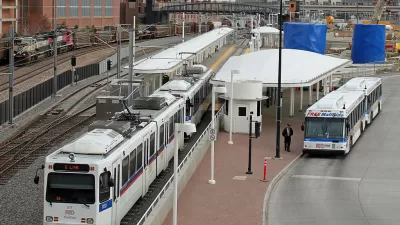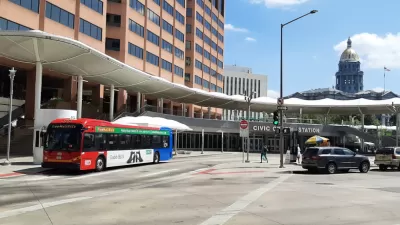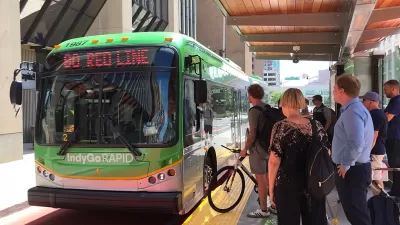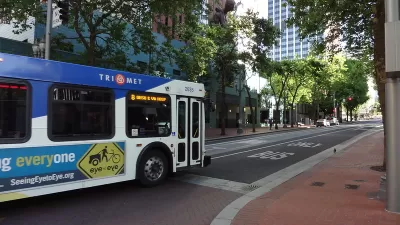The Regional Transportation District will focus on providing improved service on its most popular lines while eliminating underused routes and replacing them with on-demand microtransit.

Like other transit systems around the country, Colorado's Regional Transportation District (RTD) is proposing an overhaul of its service to better serve post-pandemic travel patterns. Nathaniel Minor reports that with ridership dropping off in suburban areas, the agency will focus on boosting service in the denser areas where ridership remained steady.
The RTD's proposal, which would change around 30 percent of the bus system, would be implemented over the next five years. The agency plans to shift existing lines, adjust service frequency on highly-used routes, and eliminate underperforming lines. To make up for the loss of service, RTD plans to introduce an on-demand service to ensure residents of lower-density areas still have access to transit. Changes would apply primarily to bus lines, while RTD's light rail and commuter rail lines would largely remain the same.
Shontel Lewis, an RTD board member, praised the proposal for "prioritizing equity" and enhancing service for the low-income communities that depend on transit. Others worry that limiting transit in suburban areas will further encourage driving and reduce the likelihood of people switching modes.
FULL STORY: RTD proposes massive overhaul: Fewer suburban buses, more service where riders remained during the pandemic

Alabama: Trump Terminates Settlements for Black Communities Harmed By Raw Sewage
Trump deemed the landmark civil rights agreement “illegal DEI and environmental justice policy.”

Study: Maui’s Plan to Convert Vacation Rentals to Long-Term Housing Could Cause Nearly $1 Billion Economic Loss
The plan would reduce visitor accommodation by 25% resulting in 1,900 jobs lost.

Planetizen Federal Action Tracker
A weekly monitor of how Trump’s orders and actions are impacting planners and planning in America.

Waymo Gets Permission to Map SF’s Market Street
If allowed to operate on the traffic-restricted street, Waymo’s autonomous taxis would have a leg up over ride-hailing competitors — and counter the city’s efforts to grow bike and pedestrian on the thoroughfare.

Parklet Symposium Highlights the Success of Shared Spaces
Parklets got a boost during the Covid-19 pandemic, when the concept was translated to outdoor dining programs that offered restaurants a lifeline during the shutdown.

Federal Homelessness Agency Places Entire Staff on Leave
The U.S. Interagency Council on Homelessness is the only federal agency dedicated to preventing and ending homelessness.
Urban Design for Planners 1: Software Tools
This six-course series explores essential urban design concepts using open source software and equips planners with the tools they need to participate fully in the urban design process.
Planning for Universal Design
Learn the tools for implementing Universal Design in planning regulations.
Caltrans
Smith Gee Studio
Institute for Housing and Urban Development Studies (IHS)
City of Grandview
Harvard GSD Executive Education
Toledo-Lucas County Plan Commissions
Salt Lake City
NYU Wagner Graduate School of Public Service





























